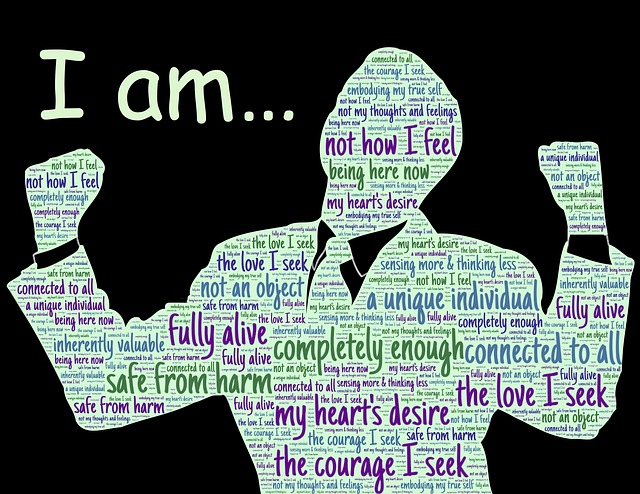Last Updated on: 11th January 2024, 11:14 pm

We know we shouldn’t compare ourselves to others, but this is often easier said than done, as it’s usually our first reaction when we encounter someone either greater or less than us.
When we encounter someone greater than us, we may end up feeling insecure, jealous, or envious as we compare ourselves to them. On the other hand, when we encounter someone less than or different than us, we tend to judge them and think they’re inferior to us.
There’s no quick and easy way to stop comparing yourself to others. It requires a change in mindset and perspectives, which will take time.
How to Stop Comparing Yourself to Others

Here are the things you can start doing now to eventually learn to stop comparing yourself to others.
1. Build self-confidence
Build your confidence so that you become comfortable and secure in yourself such that seeing others who are greater than you won’t make you feel insecure. Being confident makes you feel like you’re equal with everyone.
As well, if you’re confident and secure in yourself, then you’re not likely to judge others whom you feel may be less competent, less good-looking, or less successful than you.
While insecure people usually try to look for something wrong or bad in others just to make themselves feel better, confident and successful people are more likely to appreciate than discriminate others, especially since they’ve also come from humble beginnings and have experienced their share of criticisms.
Build your confidence so that you don’t feel the need to always be better than others. For ideas on how you can build your confidence, try welcoming these things into your life.
2. Be self-aware

Learn to be aware of yourself—your thoughts and your actions. Learn to quickly identify when you’re comparing yourself to others, so you can quickly correct them and turn them into more positive thoughts or actions.
3. Accept yourself
Learn to accept yourself for all that you are. As with self-confidence, self-acceptance enables you to become more comfortable with yourself.
Own your positive traits. Don’t be ashamed to acknowledge that you’re good in some things and to show others your other qualities and gifts.
On the other hand, learn to also accept your weaknesses. Accept that there are things which you may have to struggle with more than others do and that it is okay. You can’t be good at everything just as other people can’t be good at everything either.
In my case, I have always struggled with numbers and math. Even after giving my best in studying my math subjects while I was a student and even after graduating with a degree in Computer Science, which consisted mostly of subjects that involved a lot of math, I still get intimidated when I encounter numbers, especially when pertaining to running my business. I tend to get frustrated with myself for not being good in it despite putting in the work. Why can others get it and I can’t?
However, I’ve learned to accept that this is my weakness and is something I will never excel in. I know, though, that while I am poor with numbers, I am great with words. So, instead of focusing on my weakness, I use my strengths as leverage in my efforts to achieve my goals.
To help you more easily accept yourself, be sure to surround yourself with people who appreciate you. Being around people who constantly judge and criticize you will make it harder for you to think positively of yourself. Be selective of the people you allow into your life.
By accepting yourself for all your strengths and weaknesses, you’ll also learn to recognize that other people have their own strengths and weaknesses as well (remember, no one has everything) and that at the end of the day, we’re all on a level playing field.
4. Develop a habit of complimenting others

Develop the habit of complimenting others for their good qualities. Be quick and generous with your compliments, as the other person’s reaction will divert your thoughts from comparing yourself to them.
For example, if your friend looks pretty, quickly tell them, “Hey, you look pretty today.” They’ll probably smile and thank you for the compliment, and the positive vibe this creates will stop you from comparing yourself to them.
In contrast, if you just keep your thoughts to yourself, then those thoughts can quickly turn ugly. For example, by not acknowledging that the other person is pretty, your thoughts will subconsciously turn from “She’s pretty” to “She’s prettier than me” or even to “I’m ugly” or “I wish I were that pretty”.
By making a habit of complimenting others, you create a positive energy that will also help you avoid negative thoughts.
5. Focus on your strengths/good qualities

I believe that one of the reasons we compare ourselves to others is either because we have a negative self-image or we focus too much on our weaknesses.
Even before we see someone pretty, we probably already think we’re not. As such, seeing another person who’s pretty just amplifies our negative beliefs of ourselves. If we encounter someone who’s smarter than us, we compare ourselves to them and think we’re not so smart because we already have this preconceived notion about ourselves.
Instead of focusing on what you lack or what your negative traits are, focus on your strengths and good qualities.
There are many dimensions of beauty. Maybe you have great skin, which not everyone has. You may not be as successful as the next person, but you’re perhaps someone who easily connects with others. This isn’t true for everyone as well.
By focusing more on your strengths and your good qualities, you’ll learn to become more appreciative of the things you have.
To learn more about your strengths, you may want to take the StrengthsFinder Test. It helped me learn more about myself and why I am the way I am, as well as why other people are the way they are.
6. Remember that people have different life paths

While you may feel insecure when you encounter people greater than you, you might also feel a bit superior or judgmental when you encounter people who are less than you or are different than you.
I used to be guilty of this. I tended to judge people who I thought were underachievers or “lazy.” Despite being wheelchair-bound, I managed to complete my college degree at the top 20 percentile of my class. I managed to quickly climb the corporate ladder (I got promoted to a Senior post after only five years and I got to increase my salary by 400% within eight years of working), and I managed to start my own company. So, I couldn’t understand why “more abled” people were not doing any better or at least doing something with their life.
I learned, though, that we cannot compare ourselves to others even when the points of comparison seem obvious because there’s a lot about another person’s life we do not see and know. They’re probably going through struggles that prevent them from being what we expect of them, or they probably just have different ways of dealing with life. Whatever it is, they’re completely entitled to be whoever they want to be.
Before you compare yourself to others and judge them for what they are or are not, keep in mind that we’re all different, not just as individuals but also in our experiences and life paths.
7. Allow others to inspire you

When you encounter someone better than you in whatever aspect, instead of thinking that you’re inferior to them and instead of feeling jealous or envious of them, use them as an inspiration to improve your life.
If you find the other person admirable, figure out how you can emulate the quality you admire in them. If you think they look good because they’re fit, use this as inspiration to work towards getting fitter.
If you feel that they’re more successful than you, use their experiences as inspiration to succeed in your own goals. Maybe you can even learn from their experiences.
Conclusion
Comparing ourselves to others may be our natural response when we encounter someone better or less than us, but if we truly want to stop doing this, it takes having to change our mindsets and perspectives, which won’t happen overnight. You’ll certainly get there with constant practice, though!
What other ideas do you have on how to stop comparing yourself to others? Please share in the comments below.



